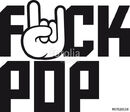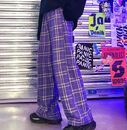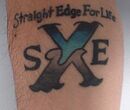mNo edit summary Tag: Visual edit |
mNo edit summary Tag: Visual edit |
||
| Line 14: | Line 14: | ||
Punk has evolved over time to be a symbol of rebellion, whether small-scale (teenager vs parents) or large-scale. Not all variants of punk are visually similar to the original 1970s American Punk (such as Steampunk) but contain similar messages about the potential for society’s decline. Aesthetics with the ‘-punk’ suffix generally share an attitude of defiance and/or rejection of mainstream society and, but there are some which are completely unrelated. |
Punk has evolved over time to be a symbol of rebellion, whether small-scale (teenager vs parents) or large-scale. Not all variants of punk are visually similar to the original 1970s American Punk (such as Steampunk) but contain similar messages about the potential for society’s decline. Aesthetics with the ‘-punk’ suffix generally share an attitude of defiance and/or rejection of mainstream society and, but there are some which are completely unrelated. |
||
| − | On the other hand, some people enjoy the visual aspect of 1970s original punk, and reject the philosophy, but most actual punks would refer to these people as posers. A popular example of this is the 1998 film ''SLC Punk!'', which specifically made fun of people who wore the fashion but didn't adhere to the philosophy, with main character Stevo (played by Matthew Lillard) famously saying towards the beginning of the film:<blockquote>Posers were people who looked like punks but they did it for fashion. And they were fools, they'd say "anarchy in the UK." What the fuck's that? Anarchy in the UK. What good is that to those of us in Utah, America? It was a Sex Pistols thing. They were British, they were allowed to go on about Anarchy in the UK. You don't live your life by lyrics. </blockquote |
+ | On the other hand, some people enjoy the visual aspect of 1970s original punk, and reject the philosophy, but most actual punks would refer to these people as posers. A popular example of this is the 1998 film ''SLC Punk!'', which specifically made fun of people who wore the fashion but didn't adhere to the philosophy, with main character Stevo (played by Matthew Lillard) famously saying towards the beginning of the film:<blockquote>Posers were people who looked like punks but they did it for fashion. And they were fools, they'd say "anarchy in the UK." What the fuck's that? Anarchy in the UK. What good is that to those of us in Utah, America? It was a Sex Pistols thing. They were British, they were allowed to go on about Anarchy in the UK. You don't live your life by lyrics. </blockquote> |
| − | |||
==Fashion== |
==Fashion== |
||
While a lot of punk fashion featured tartan plaid pants, band shirts, leather jackets, mohawks, and multi-colored hair, but the key element of Punk was the DIY philosophy (something that the [[Grunge]] aesthetic inherited from them in the 90s) of wearing clothes either bought at thrift stores or handed down from older family members and modifying it to make it look more anti-establishment. |
While a lot of punk fashion featured tartan plaid pants, band shirts, leather jackets, mohawks, and multi-colored hair, but the key element of Punk was the DIY philosophy (something that the [[Grunge]] aesthetic inherited from them in the 90s) of wearing clothes either bought at thrift stores or handed down from older family members and modifying it to make it look more anti-establishment. |
||
| Line 41: | Line 40: | ||
===Hardcore=== |
===Hardcore=== |
||
| − | Hardcore is a punk genre that is faster and more aggressive than regular punk rock. Hardcore evokes a harsh vibe, with instruments amped up to high volumes and played with a speedy aggression. Lyrics were generally politically charged, and therefore too controversial to air on mainstream media. Hardcore would aim to be very anti-commercial and anti-mainstream. As a result, hardcore is highly influential on a lot of genres, with the most notable being the [[emo]] movement. |
+ | '''[https://everynoise.com/engenremap-hardcore.html Hardcore]''' is a punk genre that is faster and more aggressive than regular punk rock. Hardcore evokes a harsh vibe, with instruments amped up to high volumes and played with a speedy aggression. Lyrics were generally politically charged, and therefore too controversial to air on mainstream media. Hardcore would aim to be very anti-commercial and anti-mainstream. As a result, hardcore is highly influential on a lot of genres, with the most notable being the [[emo]] movement. |
===Horror Punk=== |
===Horror Punk=== |
||
| − | Horror punk is a genre that takes punk, and adds a dash of proto-gothic morbidity to it. Horror punk themes include monsters and sci-fi. Because of it's themes, it often overlaps (and may even be mistaken for) with [[deathrock]]. Another genre similar to horror punk is ''psychobilly,'' which is horror punk mixed with rockabilly (the most famous example being The Cramps). Horror punk bands include The Cramps, The Misfits, T.S.O.L. and 45 Grave. |
+ | '''[https://everynoise.com/engenremap-horrorpunk.html Horror punk]''' is a genre that takes punk, and adds a dash of proto-gothic morbidity to it. Horror punk themes include monsters and sci-fi. Because of it's themes, it often overlaps (and may even be mistaken for) with [[deathrock]]. Another genre similar to horror punk is ''psychobilly,'' which is horror punk mixed with rockabilly (the most famous example being The Cramps). Horror punk bands include The Cramps, The Misfits, T.S.O.L. and 45 Grave. |
===Pop Punk=== |
===Pop Punk=== |
||
| Line 50: | Line 49: | ||
===Riot Grrrl=== |
===Riot Grrrl=== |
||
| − | Riot Grrrl is punk, but through a feminist lens. Despite proclaiming to be progressive, many females still felt the punk scene was predominantly male. Therefore, the goal of riot grrrl was to allow female punks to be heard, and have a space of their own. Riot grrrl bands include Bikini Kill, Sleater-Kinney and Bratmobile. Riot grrrl bands often address feminist issues in songs, such as sexual-assault, rape, beauty expectations, image issues, and more. |
+ | '''[https://everynoise.com/engenremap-riotgrrrl.html Riot Grrrl]''' is punk, but through a feminist lens. Despite proclaiming to be progressive, many females still felt the punk scene was predominantly male. Therefore, the goal of riot grrrl was to allow female punks to be heard, and have a space of their own. Riot grrrl bands include Bikini Kill, Sleater-Kinney and Bratmobile. Riot grrrl bands often address feminist issues in songs, such as sexual-assault, rape, beauty expectations, image issues, and more. |
==Subculture Branches== |
==Subculture Branches== |
||
===Straight Edge=== |
===Straight Edge=== |
||
| − | Straight Edge (sometimes abbreviated as sXe or signified by XXX or X) is a subculture originated from hardcore punk whose adherents refrain from using alcohol, tobacco and other recreational drugs, in reaction to the excesses of punk subculture. |
+ | '''Straight Edge''' (sometimes abbreviated as sXe or signified by XXX or X) is a subculture originated from hardcore punk whose adherents refrain from using alcohol, tobacco and other recreational drugs, in reaction to the excesses of punk subculture. |
Since then, a wide variety of beliefs and ideas have been associated with the movement, including vegetarianism and animal rights. While the commonly expressed aspects of the straight edge subculture have been abstinence from alcohol, nicotine, and illegal drugs, there have been considerable variations. Disagreements often arise as to the primary reasons for living straight edge. Although Straight Edge politics vary, from explicitly revolutionary to conservative, the latter has mostly dominated. Left-leaning activists have often approached Straight Edge with skepticism, ridicule or even outright hostility in part due to what they perceived as the Straight Edge movement's self-righteous militancy. |
Since then, a wide variety of beliefs and ideas have been associated with the movement, including vegetarianism and animal rights. While the commonly expressed aspects of the straight edge subculture have been abstinence from alcohol, nicotine, and illegal drugs, there have been considerable variations. Disagreements often arise as to the primary reasons for living straight edge. Although Straight Edge politics vary, from explicitly revolutionary to conservative, the latter has mostly dominated. Left-leaning activists have often approached Straight Edge with skepticism, ridicule or even outright hostility in part due to what they perceived as the Straight Edge movement's self-righteous militancy. |
||
Revision as of 00:09, 10 April 2021
Content Warnings: This page makes brief mention of white supremacy, Neo-Nazism, rape, sexual assault, and more.
Punk is an aesthetic centered around the punk rock movement of 1970s UK that followed in the footsteps of the Hippie movement. While the Hippies were more about peace, love, and harmony; the Punks were loud, abrasive, acerbic, and went out of their way to do whatever they could to offend members of the status quo. Many preached for anarchism, far-left politics (Punk in the UK was a direct reaction to the Margaret Thatcher-era of politics at the time, which was hardline right-wing, after all), and spitting in the face of the Establishment by rejecting the prevailing capitalist philosophy of the time.
Punk has evolved over time to be a symbol of rebellion, whether small-scale (teenager vs parents) or large-scale. Not all variants of punk are visually similar to the original 1970s American Punk (such as Steampunk) but contain similar messages about the potential for society’s decline. Aesthetics with the ‘-punk’ suffix generally share an attitude of defiance and/or rejection of mainstream society and, but there are some which are completely unrelated.
On the other hand, some people enjoy the visual aspect of 1970s original punk, and reject the philosophy, but most actual punks would refer to these people as posers. A popular example of this is the 1998 film SLC Punk!, which specifically made fun of people who wore the fashion but didn't adhere to the philosophy, with main character Stevo (played by Matthew Lillard) famously saying towards the beginning of the film:
Posers were people who looked like punks but they did it for fashion. And they were fools, they'd say "anarchy in the UK." What the fuck's that? Anarchy in the UK. What good is that to those of us in Utah, America? It was a Sex Pistols thing. They were British, they were allowed to go on about Anarchy in the UK. You don't live your life by lyrics.
Fashion
While a lot of punk fashion featured tartan plaid pants, band shirts, leather jackets, mohawks, and multi-colored hair, but the key element of Punk was the DIY philosophy (something that the Grunge aesthetic inherited from them in the 90s) of wearing clothes either bought at thrift stores or handed down from older family members and modifying it to make it look more anti-establishment.
While not super well known and enforced in modern days, lace colors on combat boots were/are an established thing in the punk scene. Their meanings:
- Black: No affiliation, or Straight Edge (see below).
- Blue: Anti-cop/Anti-police.
- Yellow: Anti-racism and discrimination.
- Purple: A new variant, meaning support for the LGBTQ+ community.
There were/are less favored lace colors, such as:
- White: White power, or the KKK.
- Red: Neo-Nazism.
Again though, this is not common these days, with only a few punks still following this code.
Music
Punk rock (or "punk") is a rock music genre that emerged in the mid-1970s in the United States, United Kingdom, and Australia. Rooted in 1960s garage rock and other forms of what is now known as "proto-punk" music, punk rock bands rejected perceived excesses of mainstream 1970s rock. They typically produced short, fast-paced songs with hard-edged melodies and singing styles, stripped-down instrumentation, and often political, anti-establishment lyrics. Punk embraces a DIY ethic; many bands self-produce recordings and distribute them through independent record labels.
The term "punk rock" was first used by American rock critics in the early 1970s to describe 1960s garage bands and subsequent acts understood to be their stylistic inheritors. When the movement now bearing the name developed between 1974-1976, acts such as Television, Patti Smith, and the Ramones in New York City, the Sex Pistols, the Clash, and the Damned in London, and the Saints in Brisbane formed its vanguard. As 1977 approached, punk became a major cultural phenomenon in the UK. It spawned a punk subculture expressing youthful rebellion through distinctive styles of clothing and adornment (such as deliberately offensive T-shirts, leather jackets, studded or spiked bands and jewelry, safety pins, and bondage and S&M clothes) and a variety of anti-authoritarian ideologies.
Music Subgenres
Hardcore
Hardcore is a punk genre that is faster and more aggressive than regular punk rock. Hardcore evokes a harsh vibe, with instruments amped up to high volumes and played with a speedy aggression. Lyrics were generally politically charged, and therefore too controversial to air on mainstream media. Hardcore would aim to be very anti-commercial and anti-mainstream. As a result, hardcore is highly influential on a lot of genres, with the most notable being the emo movement.
Horror Punk
Horror punk is a genre that takes punk, and adds a dash of proto-gothic morbidity to it. Horror punk themes include monsters and sci-fi. Because of it's themes, it often overlaps (and may even be mistaken for) with deathrock. Another genre similar to horror punk is psychobilly, which is horror punk mixed with rockabilly (the most famous example being The Cramps). Horror punk bands include The Cramps, The Misfits, T.S.O.L. and 45 Grave.
Pop Punk
TBA
Riot Grrrl
Riot Grrrl is punk, but through a feminist lens. Despite proclaiming to be progressive, many females still felt the punk scene was predominantly male. Therefore, the goal of riot grrrl was to allow female punks to be heard, and have a space of their own. Riot grrrl bands include Bikini Kill, Sleater-Kinney and Bratmobile. Riot grrrl bands often address feminist issues in songs, such as sexual-assault, rape, beauty expectations, image issues, and more.
Subculture Branches
Straight Edge
Straight Edge (sometimes abbreviated as sXe or signified by XXX or X) is a subculture originated from hardcore punk whose adherents refrain from using alcohol, tobacco and other recreational drugs, in reaction to the excesses of punk subculture.
Since then, a wide variety of beliefs and ideas have been associated with the movement, including vegetarianism and animal rights. While the commonly expressed aspects of the straight edge subculture have been abstinence from alcohol, nicotine, and illegal drugs, there have been considerable variations. Disagreements often arise as to the primary reasons for living straight edge. Although Straight Edge politics vary, from explicitly revolutionary to conservative, the latter has mostly dominated. Left-leaning activists have often approached Straight Edge with skepticism, ridicule or even outright hostility in part due to what they perceived as the Straight Edge movement's self-righteous militancy.
Conservative/Right-Leaning Punks (not finished)
Though majority of punk movement were/was leftist, there were conservative, centrist, and right leaning punks. Some punks were left leaning, but became right leaning as they became older. Though there is mainstream punk ideology that is very leftist, not all punks believe this ideology. Not all punks believe in anarchy, socialism, or communism. Many Left leaning punks would call theses posers, whether they are or not is up to debate. Many punks believe that punk should not be tied to a single political movement, and that punk is believing, saying, and doing whatever you want. Many believe that punk is freedom to be you despite what mainstream, or your own community says.
At the end of the day, punk has never had just one Philosophy. Through the years, you could ask multiple punks ``What is the Philosophy of punk?" and every one of them could say something slightly or very different. Some punks are radical, and others are more down to earth. Punk has always been diverse in its beliefs, people from different political areas have always been part of the punk movement despite what gatekeeps say. Many left leaning punks say that punk is only left leaning, and though a majority of punk has been shown to be left leaning, there are punks who identify as conservative, right leaning, and more to this very day. Many punks believe that no one really gets to decide what is or isn't punk.
Punk ideologies Wikipedia says "A small number are conservative, rejecting leftist-anarchism, liberalism, communism and socialism in favor of conservatism. Notable conservative punks include Johnny Ramone, Dee Dee Ramone, Forgotten Rebels, Billy Zoom, Joe Escalante, Bobby Steele, Duane Peters and Dave Smalley. Some Christian punk and hardcore bands have conservative political stances, in particular some of the NYHC bands. And Glenn Danzig."[1]
Conservative/right leaning punks would include
- Johnny and Dee Dee Ramone
- Forgotten Rebels
- Billy Zoom
- Joe Escalante
- Bobby Steele
- Duane Peters
- Dave Smalley
- Michele Graves
- John Lyndon(Johnny Rotten)
Politics(not finished)
Gallery
- ↑ <Punk ideologies - Wikipedia/Superscript







